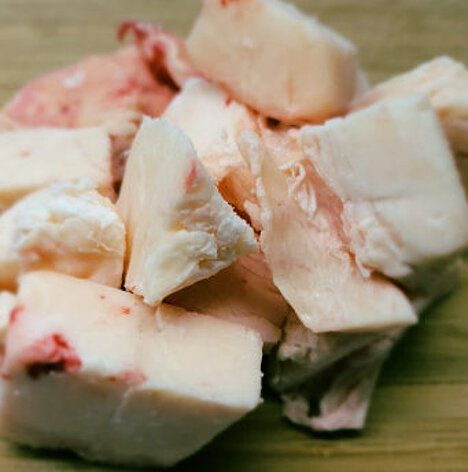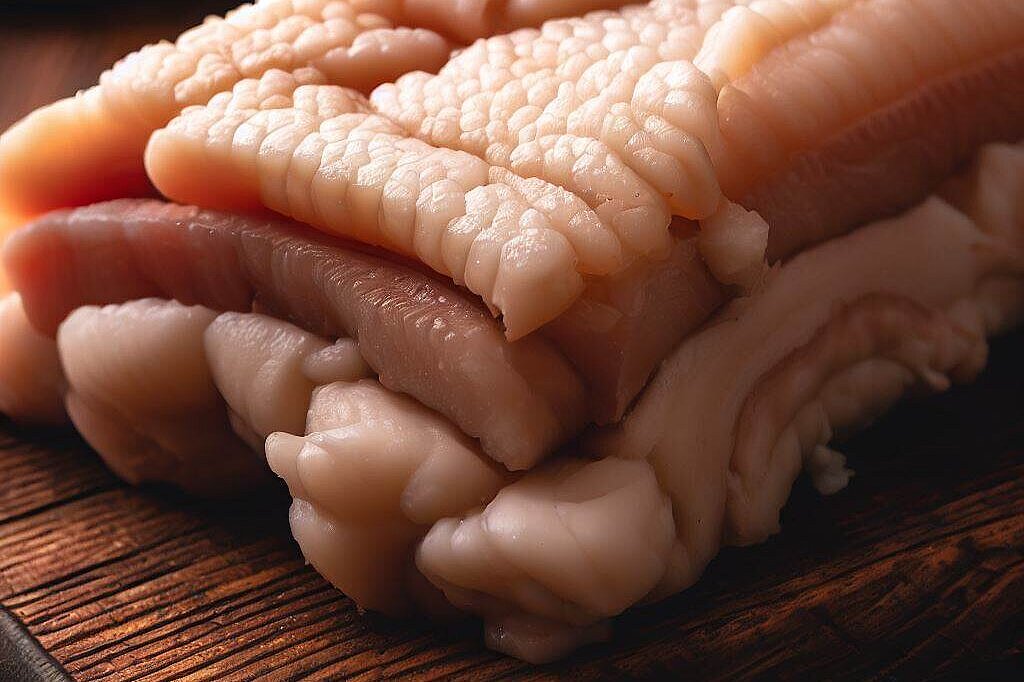Beef fat

Beef fat is a food supplement for dogs that consists of beef broth and beef fat. It is mainly administered when the dog simply needs to be fed up or needs an energy boost after letting off steam. In this article, you will find out what beef fat is, when it makes sense to give it to your dog and what advantages and disadvantages it has.
What is beef fat?
Beef fat is the fatty tissue from cattle that is produced during slaughter. It contains mainly saturated fatty acids, which have a high energy density and can quickly give the dog strength and stamina. Beef fat is also rich in vitamins A, D and E, which are important for the health of the skin, coat, eyes and immune system.
Beef fat is usually offered in dried form as a powder or in cubes. It can be mixed in with normal dog food or fed on its own. The dosage depends on the size, weight and requirements of the dog. As a rule of thumb: one teaspoon of beef fat powder or one cube of beef fat per 10 kg of body weight per day.
When is beef fat good for dogs?
Beef fat can be good for dogs in various situations, for example:
- If the dog is underweight or suffers from a lack of appetite.Beef fat can help to increase weight and improve the taste of the food.
- If the dog is ill or recovering from an operation. Beef fat can promote wound healing and strengthen the immune system.
- If the dog is very active or does a lot of sport. Beef fat can increase performance and speed up regeneration.
- If the dog is pregnant or nursing. Beef fat can cover the increased energy requirement and support milk production.
What are the advantages and disadvantages of beef fat?
Beef fat has both advantages and disadvantages for dogs, which you should weigh up before giving it to your four-legged friend.
The advantages include:
- It's a natural product with no artificial additives (depending on the manufacturer).
- It is easily digestible and well absorbed by the dog.
- It has a high nutritional value and provides many important vitamins.
- It can improve the dog's well-being and vitality.
The disadvantages include:
- It has a high fat content and can lead to obesity if given too often or too much.
- It can cause digestive problems such as diarrhea or bloating if the dog is not used to it or has an intolerance.
- It can cause allergies or skin problems if the dog is sensitive to beef.
- It can affect blood sugar levels if it contains glucose (which some manufacturers add).
Beef fat is a useful dietary supplement for dogs that can help to meet energy requirements and promote health in certain situations. You should also pay attention to the quality and ingredients of the product and compare different suppliers.
Properties 14
Are you looking for other ingredients with a specific property?
Just click on them to find more.
If you notice any signs of hypersensitivity or poisoning in your dog, you should see your vet immediately. We are not a substitute for a vet, but we try to be as accurate as possible. Every dog reacts differently and we recommend you get a second opinion or consult your vet if in doubt.
Stay healthy and take good care of your four-legged friend!😊
Similar to Beef fat
Pork fat is a saturated fat consisting mainly of palmitic, stearic and oleic acid. It has a high melting point and is solid at room temperature. Pork fat has a characteristic taste and smell that...
Chicken fat is an important source of energy for dogs. It provides more than twice as much energy as carbohydrates or protein. This is particularly beneficial for active dogs that need a lot of...
Benefits of lamb fat for dogs Lamb fat can be beneficial for dogs in certain situations. For example: If the dog is very active and consumes a lot of energy, lamb fat can help to meet calorie...
Duck fat has several benefits for dogs that can make it a good addition to their diet. For one, duck fat can promote skin and coat health as it supports the formation of skin cells and hair. In...



